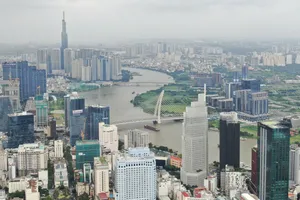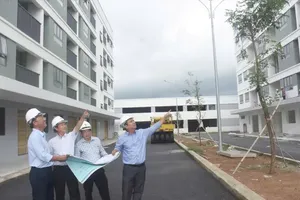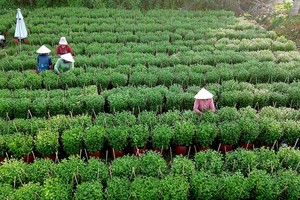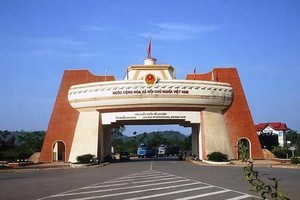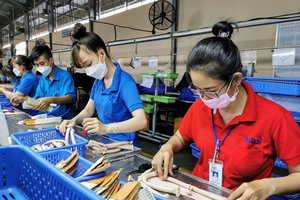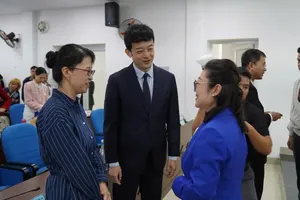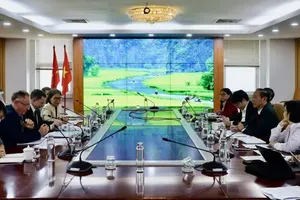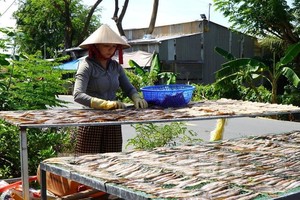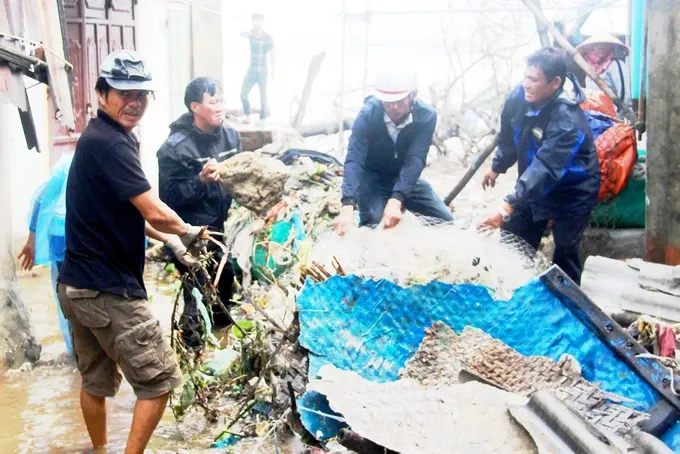
Accordingly, the General Department of Taxation has recently issued a document to 26 local tax departments in 26 northern provinces and cities and Thanh Hoa Province, outlining tax exemptions, reductions, and extensions for individuals and businesses affected by Typhoon No. 3 (Yagi).
These measures include corporate income tax, value-added tax (VAT), special consumption tax, resource tax, and non-agricultural land use tax. This move is a testament to the government's commitment to alleviating the burden on affected citizens and businesses.
Moreover, the Ministry of Planning and Investment estimates that the nation's GDP will contract by 0.15 percent this year, given that the aforementioned provinces account for over 41 percent of the country's GDP and 40 percent of its population.
A pressing question arises regarding the extent of damage to production facilities in key industrial hubs such as Quang Ninh Province and Hai Phong City. This is because the provinces in northern Vietnam primarily affected by flash floods are not major manufacturing centers and thus have a less significant impact on national industrial and service growth.
A thorough assessment is required to gauge the severity of the impact on industrial and service sectors, and consequently, on the overall economy. Seeing that Vietnam the nation has endured consecutive crises of pandemic and natural disasters, its resilience and recovery efforts are commendable. Nevertheless, a more systematic national risk management framework is needed to address both natural and man-made disasters, encompassing preparedness, response, and recovery phases.
Typhoons and floods have immediate and direct consequences on livelihoods and business operations, indirectly depleting the workforce and damaging physical capital, leading to a high demand in substantial investments in rebuilding infrastructure, workforce, and machinery. Investing in modern and efficient production facilities after these disasters can stimulate long-term productivity growth.
Moreover, the government should implement supportive fiscal policies, such as tax incentives and public investment packages to repair and upgrade damaged infrastructure. Monetary policies can also facilitate access to credit for businesses to rebuild and resume operations. This is an opportune moment to encourage investment in priority sectors and regions to enhance resilience to future disasters and promote sustainable development.
Adopting a "build back better" approach is crucial for fostering resilient urban development, upgrading production capacity for rapid economic recovery, and establishing a robust national risk management system based on technology and digital transformation.
In addition, leveraging the positive economic momentum in the first half of 2024, and building upon the strong performance in July and August, it is imperative to maintain high growth rates in manufacturing, processing, and export-oriented services to mitigate the economic and social impacts of the disasters.
Finally, it is advisable to develop a robust, science-based framework for addressing national risks proactively. Only then can Vietnam truly erase all negative socio-economic influences caused by natural disasters or epidemics.
In related news, the Vietnam Chamber of Commerce and Industry (VCCI) yesterday submitted proposals to the Prime Minister, calling for specific support measures for businesses affected by Typhoon Yagi. These include tax exemptions and reductions, subsidized loans, and support for the fishing industry. Consolidating feedback from various businesses and associations, the VCCI also presented a series of concrete recommendations.
Among these, for industries and localities most severely impacted by Typhoon Yagi (including fishing vessels, tourism boats, and offshore, riverine, and lacustrine aquaculture cages), the VCCI proposes augmenting the level of compensation for aquaculture cage damages as stipulated in Decree 02/2017/ND-CP and extending this support to all aquaculture enterprises.
Furthermore, the VCCI recommends compensating for actual damages to fishing vessels and tourism boats, waiving water surface rental fees for aquaculture establishments until the end of 2025, and exempting certain fees and charges for a period of six to twelve months.
Additionally, the VCCI urges the government to consider proposing to the National Assembly a 50-percent reduction or exemption of value-added tax, corporate income tax, and personal income tax for affected entities for a period of four to six months. The VCCI also suggests considering reductions in social insurance contributions and exemptions from trade union fees for the same duration.
For other industries in affected localities, the VCCI has put forth additional proposals such as expanding support to include agricultural businesses affected by the typhoon, reducing the value-added tax on gasoline from 10 percent to 8 percent from September to December for retail gasoline stations in affected localities, particularly in the northern mountainous regions, and reducing the value-added tax on electricity from 8 percent to 6 percent for consumers in affected areas.
Lastly, businesses have requested that the Prime Minister direct the disbursement of disaster prevention funds to provide relief and address the consequences of Typhoon Yagi. According to the VCCI, this fund, which is contributed by businesses and workers, had a surplus of nearly VND2 trillion (US$81.15 million) as of 2023.
